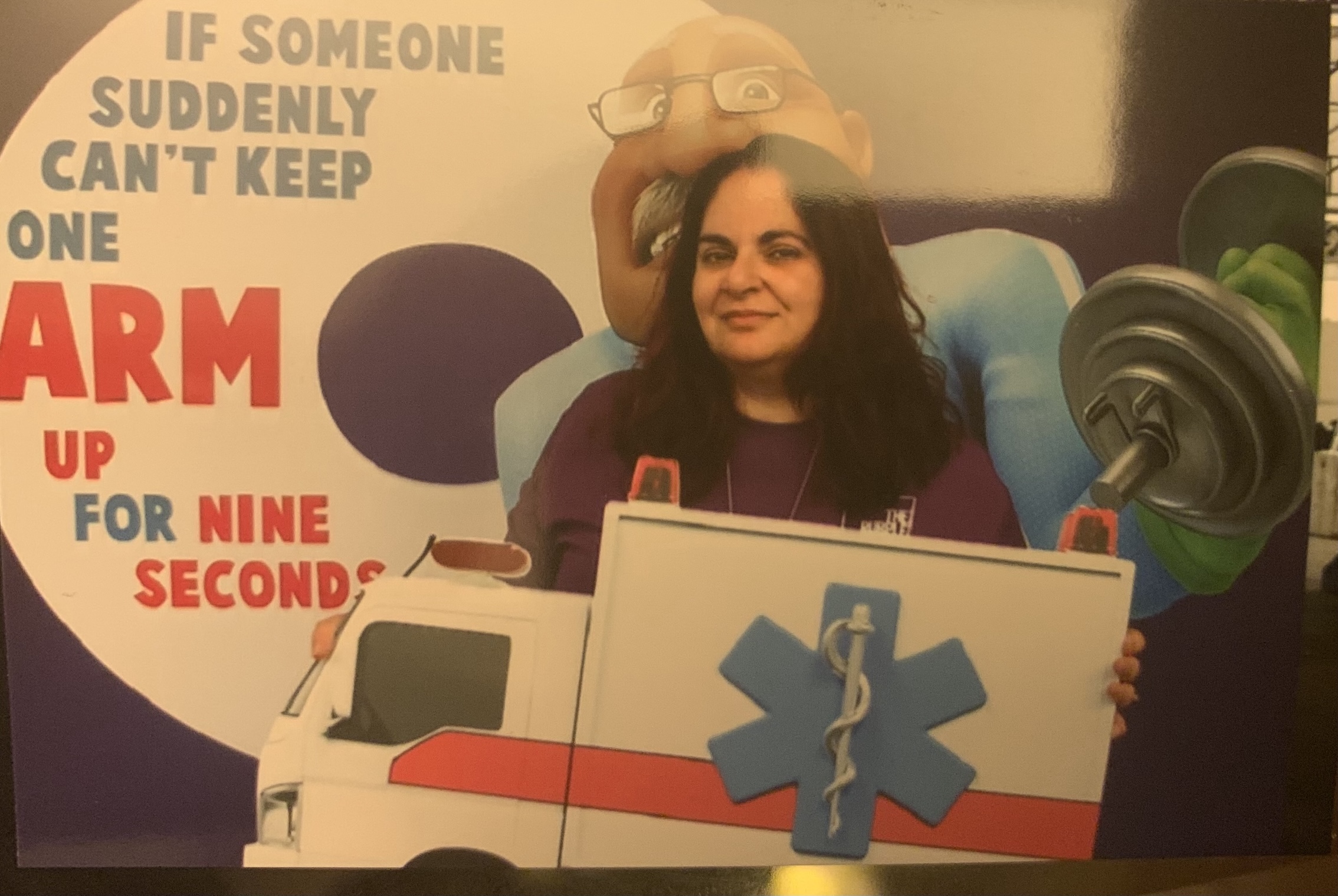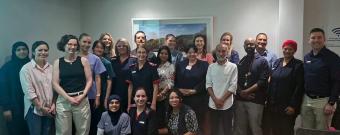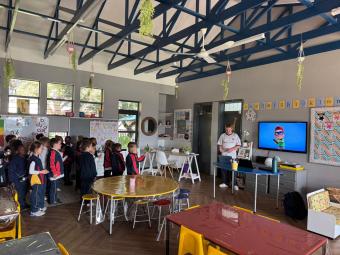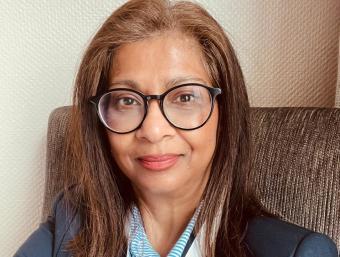
In September 2024, a minivan carrying an impressive roster of stroke experts crossed the border from Poland into Ukraine. From there it continued to Lviv, the largest city in western Ukraine, where they would meet up with members of the Ukraine stroke community.
Despite its distance from the front, a wave of Russian drones and hypersonic missiles had recently struck the city’s historic center. Francesca Romana Pezzella, the Italian neurologist who was leading the expedition, felt responsible for everyone in the vehicle – Hanne Christensen from Denmark, Björn Logi Thorarinsson from Iceland, Natan Bornstein from Israel, Alessandro Bufi from Perugia, Italy, and Francesca’s mentor and a past ESO president, Valeria Caso.
“If something happened, I would be responsible and liable,” she recalls during a rare break at ESOC in Helsinki where she has just been introduced as the new chair of the Stroke Action Plan for Europe (SAP-E).
As a precaution she’d registered their itinerary on an Italian website that would activate an emergency response in a crisis. She also downloaded an air raid warning app, and mapped out several exit routes in case the situation called for a hasty retreat.
It wasn’t science but the human spirit that provided the fuel for this ride into the danger zone. In the third year of an unimaginable war, they met the moment by doing the one thing that couldn’t be delivered via a video screen.
“It was a question of being present,” Francesca Romana says.

Their gallant gesture struck the right chord, but the truth was Francesca Romana and her fellow travellers had been showing up for Ukraine ever since the Russian invasion of February 2022 started the deadliest war in Europe since World War II.
Her first reaction to news of the invasion had been disbelief, Francesca Romana says. “I’d been there in December and was due to go there in February, but all travel and activities were immediately cancelled. We thought it couldn’t be true.”
Discussions within the ESO posed the question, what should a scientific society do? The answer was a task force to address the needs of the Ukrainian stroke community that Francesca, who by her own assessment has the makings of an activist, was tapped to lead.
They realized their Ukrainian colleagues were in shock, she says. Urgent needs were met with urgent responses, such as Prof. Giancarlo Graziani of San Filippo Neri Hospital opening the doors of his rehabilitation unit to a Ukrainian stroke survivor, and others opening their homes. Francesca Romana offered comfort and connection in early morning phone calls from Rome where she is the senior neurologist at San Camillo Forlanini Hospital. She says, “We had to keep the community together, let them know they were not alone.”
Soon there was a series of education seminars for stroke physicians, supported by the steadfast Angels team in Ukraine. Participation grew as doctors from all over the country logged in for experience-sharing and a sense of community. During blackouts in occupied cities, doctors connected with their mobile phones inside darkened corridors.
These seminars offered them a chance to grow and learn from the best minds in the world. Dr Michael Mazya from Sweden’s Karolinska Institute spoke about intravenous thrombolysis in acute ischemic stroke. Prof. Peter Kelly dialled in from Dublin to speak about secondary prevention after stroke. Prof. Urs Fischer, head of neurology at University Hospital Basel, Switzerland, spoke about anticoagulation after stroke . . .
“We gave them the best,” Francesca Romana says.
Heedful of their Ukrainian colleagues’ evolving needs, the TF4UKR coordinates with the World Health Organization and other European institutes to provide joint support, and in September 2024, with the aid of a grant from Oslo University, joined hands with the Ukrainian Stroke Medicine Society to organize a stroke conference in Lviv.
Among the participants at the conference were six distinguished stroke neurologists who had all arrived via Poland in a minivan.
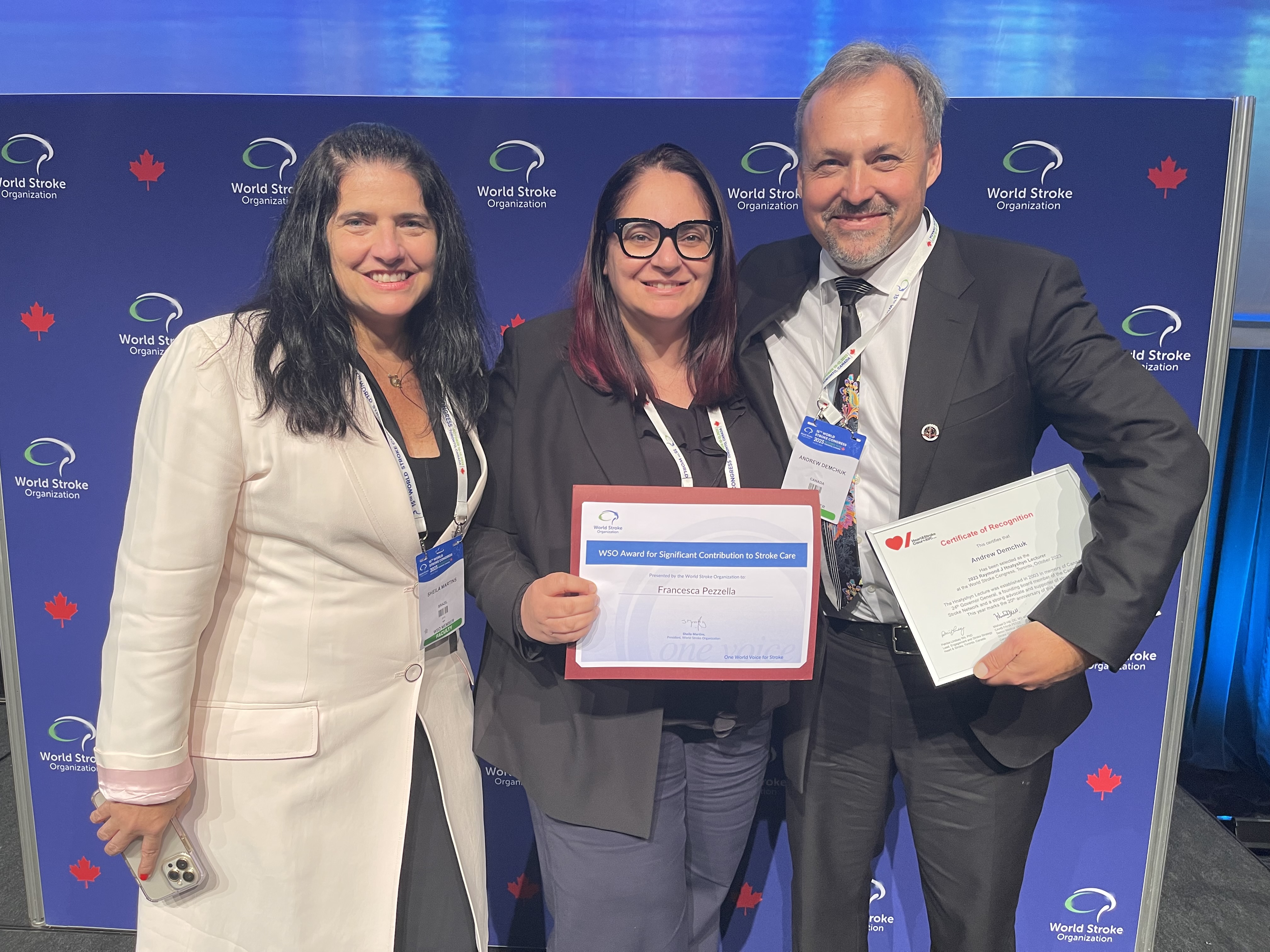
It’s personal
Showing up for Ukraine by being emotionally and physically present fits a larger pattern of engagement with the world of stroke. Francesca Romana is a founding member of ESO-EAST (a program to address stroke care disparities in Eastern Europe), and one of the architects of the Stroke Action Plan for Europe (SAP-E), an ambitious pan-European initiative that sets targets for the development of stroke care by 2030. Firmly rooted in public heath, the commitment to equal and universal healthcare access that underpins projects like ESO-EAST and SAP-E is exactly in line with her vision for how the world should be. She is someone you can count wherever compassion meets action. In her own words, “I’m the kind of person who doesn’t step back.”
Francesca Romana has made a conscious effort to discover and develop the kind of person she is. “I have been working on myself for a long time,” is how she puts it. At medical school she was briefly torn between neurology and psychology. She chose neurology for the human contact, but remained sufficiently interested in the social aspect of the mind’s functioning to take courses in behavioural science, and later started a personal path with psychoanalysis. “It was a safe environment to express myself,” she says. “It was where I learnt to be the authentic version of me.”
She knows, for example, that she excels under pressure, so it’s no mystery why she has always worked in acute stroke, or why she likes being in the ER.
She also knows that she is not by nature a soloist. “I like orchestras,” she says, “I am comfortable in orchestras.” She grew up in the scouts and as a teenager sang in a choir, learning to love not only the harmony but the value of collaboration: “When you sing in a choir, you know when it is your turn to sing.”
She enjoys the collaborative culture within the SAP-E. Newly elevated to its chair, she insists: “It’s not chair, it is a sofa with lots of committed people on it.”
She is herself the beneficiary of the kind of leadership that makes room for others: “Valeria [Caso] has given my many opportunities. So, the vision is of a sofa.”
SAP-E is the most extensive policy project on stroke ever undertaken in Europe. When Francesca Romana picked up the baton from Hanne Christensen at ESOC 2025, the program had just past the halfway mark and the score at the end of the first half exceeded expectations. Forty-seven out of 49 targeted countries had already aligned themselves with the program, and although the Declaration for Action on Stroke had as yet been signed by the health ministers of just 14 countries, national stroke plans were taking shape in many more. Shortly to make it 15 was Italy, where the Stroke Action Plan for Italy, helmed by ISA-AII president Paola Santalucia, was presented to the senate in April.
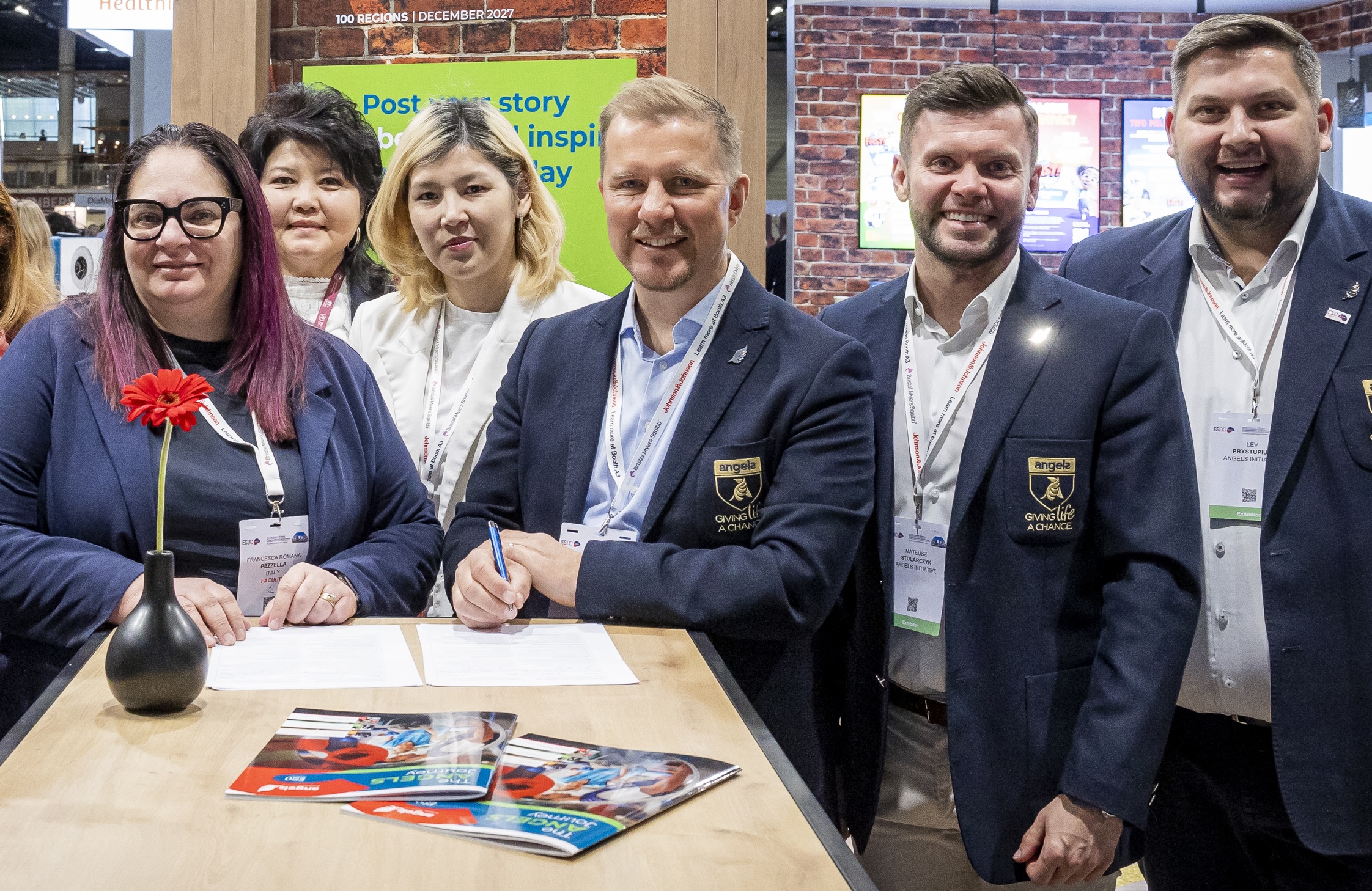
Until Aleš Tomek became co-chair of SAP-E in May, policy programs for stroke care looked a lot like women’s work, with the top leadership positions filled by purposeful women such as action plan past chair Hanne Christensen and co-chair Arlene Wilkie, new ESO EAST steering committee chair Cristina Tiu, and Francesca Romana herself. Could it be a case of, if you want something done, ask a busy woman?
She is a busy woman who enjoys a lot of support from her family, Francesca Romana says. She is married with two daughters aged 20 and 16 of whom she is immensely proud. Whether she is travelling or working night shift at her hospital, “they make my life easy at home”. It goes without saying that they are very proud of her too.
In a balancing act familiar to busy women, Francesca Romana makes a point of being present in her family life while also showing up for stroke – and for young healthcare professionals in Italy and elsewhere in Europe who may need someone in their corner. She wants them to know they can reach out to her at any time and receive concrete help. And then they must pay it forward by helping someone else.
“I would like my legacy to be something concrete,” she says. “Not just talking. I want my legacy to be, Francesca Romana did something.”
